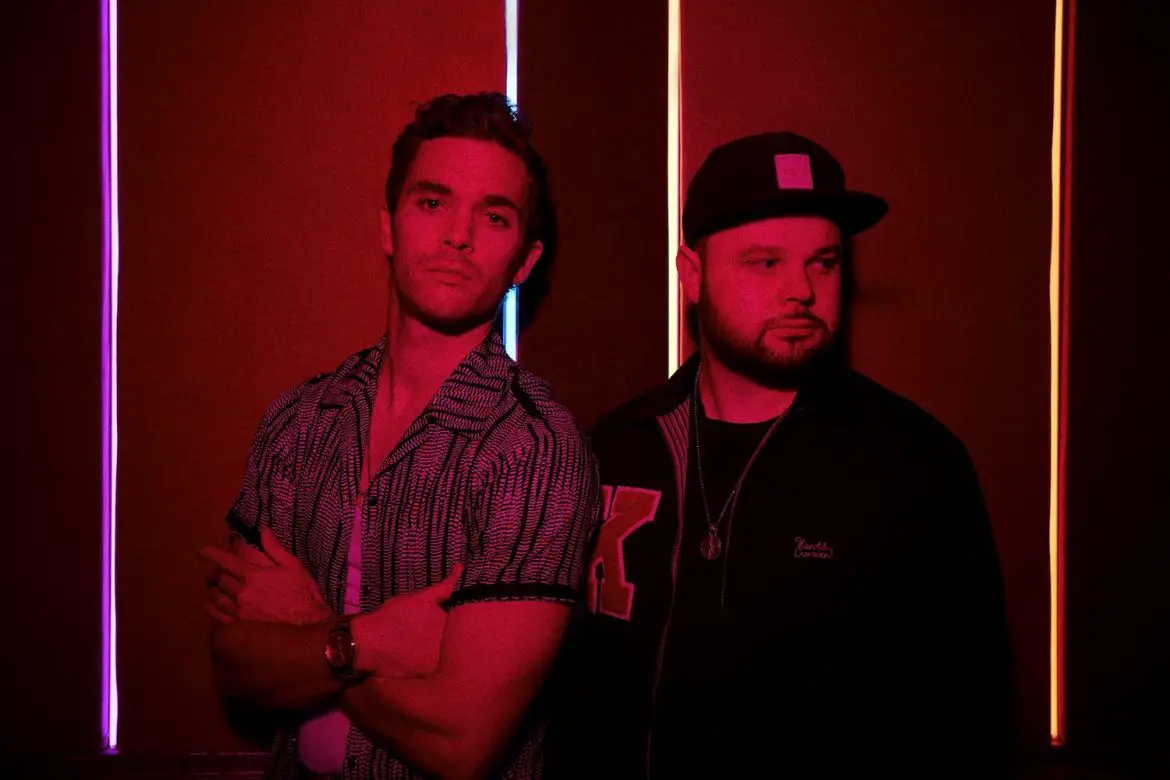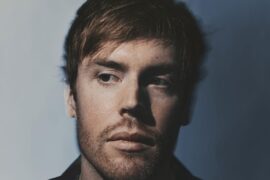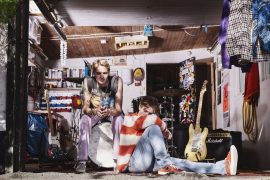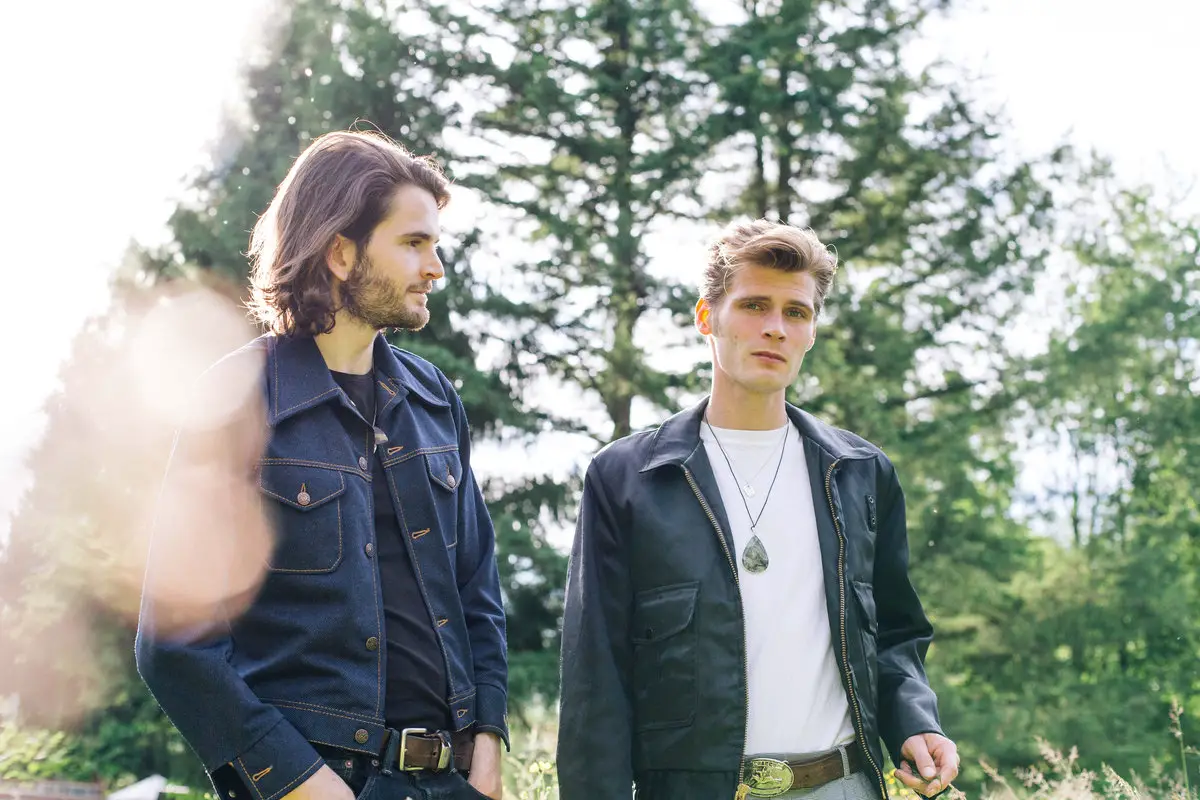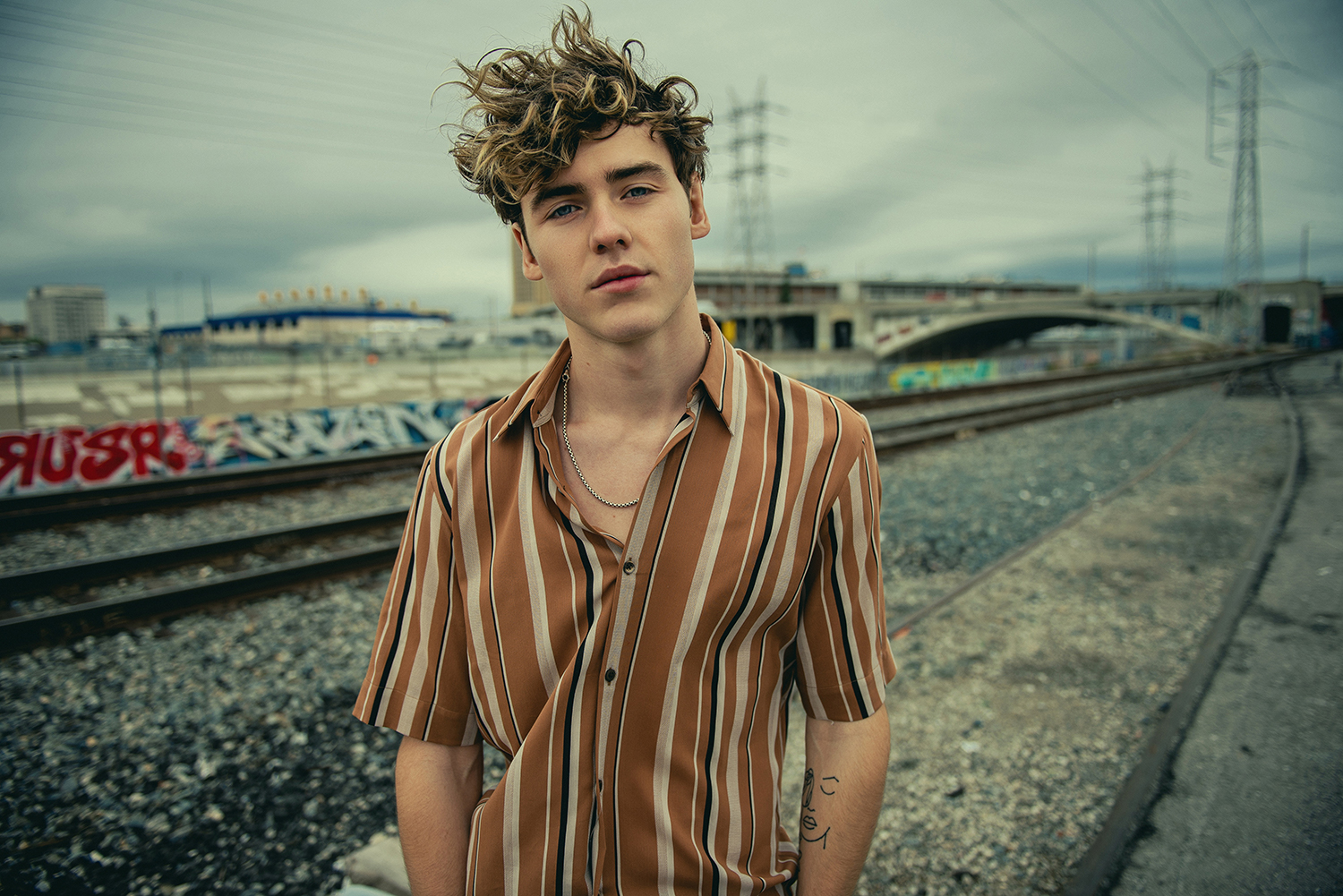UK duo Royal Blood bring rock to the club on their blistering third album ‘Typhoons,’ and drummer Ben Thatcher sits down with Atwood Magazine to chat all about it.
Stream: ‘Typhoons’ – Royal Blood
Whatever a person’s feeling, or however they relate to the music, I hope this record says what they need.
If you know Royal Blood, the first thing that comes to mind is probably their sound.
Thundering walls of bass as crushing as a tidal wave (or perhaps a typhoon) set to a war march tattoo. You may also note they lack one of rock and roll’s perennial trademarks. Between the duo of Mike Kerr and Ben Thatcher, there exists not a single six string guitar. Instead, Kerr slings on a bass with which to conquer the world. They may not be the first to attempt such a feat, but their stamp on it is one of a kind. You can’t hear the blasting riff of “Little Monster,” the grunge-pop groove of “I Only Lie When I Love You” or the bubbling paranoia of their biggest hit “Figure It Out” and mistake them for any other band.
Being so easy to spot is both blessing and curse though. While fans can instantly know what to expect, those expectations can threaten to pigeonhole them at the same time. When Royal Blood barged out of the gate in 2014, their formula of wrecking ball rock was such a smash that they didn’t want to mess with a good thing. “We didn’t want to lose what we built,” says drummer Ben Thatcher, referencing their 2017 album How Did We Get So Dark? “So we kind of tiptoed our way into a bit more production, using keyboards and other sounds.” To the untrained ear, the differences between it and their self-titled debut are nominal, as if comprising Side A and Side B of a single record. Both built Royal Blood’s resumé into quite a formidable one, but for the band, it was time for a change.

Enter Typhoons.
Although they trade in the loud and the heavy, Kerr and Thatcher pull from very different influences on their latest album (released April 30 via Warner Records UK). Growing up, the two found themselves inspired by the likes of 70’s disco via the Bee Gees and French dance spearheaded by the indomitable Daft Punk. “We heard a real heaviness in their sound,” explains Thatcher. “It’s all the stuff we listened on the tour bus, driving from city to city. We just wanted to bring that party a bit more to the stage.”
From the first few bars of lead single “Trouble’s Coming,” it’s clear there’s a little more bounce in the duo’s step. Thatcher lays down a four-on-the-floor beat teasing what’s to come. It has its roots in the swirling darkness of their previous work, but with rays of dancefloor sheen reflected from a high-hanging disco ball. Lightly sprinkled synths buoy Kerr’s bouncing vocals, which the duo ride to their highest ranking on the US alternative airplay charts to date. But that was just a taste of what they had in store.
The rest of Typhoons wears its underground rave colors on its sleeves. And it’s the most fun the group has sounded to date. “We felt like we had these monster songs now that have this dance element and this kind of freedom, really,” says Thatcher. “It still sounded like Royal Blood but just had a lot more to it.”
While the duo’s music has always thrived on an underlying buoyancy, for the first time it breaches the surface like a laser-lit whale. “Limbo” floats a morsel of disco synths before Kerr’s bass charges in. The one-two punch of “Mad Visions” and “Hold On” channel the glitched-out ferocity of classic Daft Punk and Justice. And the savage stomp of “Boilermaker” dares listeners to gyrate to Josh Homme-produced fuzz.
We wouldn’t be the people that we are now if we didn’t do the first record and progress. And I think ‘Typhoons’ shows the growth of our sound.
Beneath the euphoric party on display though resides a thematic gloom. Kerr sings of internal struggles with mental health, likening it to a raging storm (typhoons, anyone?). And although much of the album came to fruition during lockdown, that alone wasn’t the source of the strife. “The lyrics from this record had nothing to do with the pandemic,” confirms Thatcher. “It’s more the psychological things within your head and the storms in your own mind. But then the music for us felt so euphoric, and it was kind of like an antidote for what was going on around us at the time.”

My thoughts becoming parasites
The live to keep me terrified
I tell myself I’ll be alright
Typhoons keep on raging
And I don’t know why
Dancing the pain away may not be one’s first inclination, but for Kerr, it’s nothing short of catharsis. A brutal touring schedule and a routine of partying in one city after another began to take its toll. Eventually he decided to quit the party animal lifestyle and become sober. It was only after that process that he could finally look inward and write about the issues that plagued him during that time. At its core, Typhoons is an examination of the flipside of fame, how it can swallow you up and leave you gasping for air.
Mike Kerr came out the other side, but not everyone is so lucky. After a year lost to the ravages of COVID-19, even those spared the physical violence of the disease could be left with psychological scars.
To many of us, the typhoons are very real, and help has been in short supply. “There’s a lot of people suffering from addiction or mental health issues,” remarks Thatcher. “Sometimes they can feel quite overwhelming and overbearing and you can’t quite get out from under them.” Together, the pair are hoping that their new album can at least bring a glimmer of hope. Through the turmoil, the lingering mark of Typhoons is one of euphoria, that when we can talk about our pain, we can work – and perhaps even dance – through it.
I know the world’s shaking, body and mind breaking
Catch yourself, don’t fail to the ground
Life is hard when you’re losing, nothing easy’s worth doing
Save yourself, don’t throw in the towel
Though still heavy enough to demolish a brick wall, Royal Blood inject their music with something entirely new: Joy. And that’s something that can still be found even in the darkest of places.
Atwood Magazine sat down with drummer Ben Thatcher to dive deep into Typhoons, channeling pain through song, and the band’s excitement to take the album on the road post-quarantine. Check out our conversation below.
There’s a lot of people suffering from addiction or mental health issues. Sometimes they can feel quite overwhelming and overbearing, and you feel like you can’t get out from under them. These songs talk about being stuck in a storm in your own head, and repeating this motion of going out, getting drunk, and then waking up again, and it’s just the same. You feel terrible.
— —
Stream: “Trouble’s Coming” – Royal Blood
A CONVERSATION WITH ROYAL BLOOD
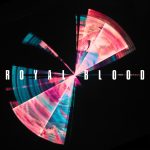
Atwood Magazine: So let's rewind a decade, and I'm sure you're probably bored to death of answering this question. But for Atwood's readers who maybe aren't familiar with Royal Blood, how did the band first come together?
Ben Thatcher: Mike and I have been friends since we were 15 years old. We met at a music gig where Mike came to see me play with another band I was playing in, and we got chatting, and I went to see his band. Then I joined one of his bands, and it was all very incestuous. You know, we had lots of mates who are all in these bands together. It created this little scene down the south coast of England.
Then Mike went to Australia for a bit and I was doing some other projects. Once he came back from Australia, we thought we’re gonna try and make some music together. He had a few, ideas, and we had this great bass sound we had come up with. We were just jamming, coming up with a couple of songs, one of them being “Figure It Out,” which is probably our biggest song to date.
At first we found it really hard to get gigs, so what we would do is crash open mic nights. And we’re just turn up to these acoustic gigs in these bars and venues and I would just bring in my drum kit. We’d start playing, bashing out a Royal Blood song. And that’s how the birth of the band came about.
And three albums later, we're at Typhoons. How did the process of writing and recording this album contrast with your previous work?.
Ben Thatcher: It’s been eight years since we started the band. The first album was quite raw, just bass and drums and vocals. The second album, we didn’t want to lose what we’ve built. So we kind of tiptoed our way into a bit more production, using keyboards and other sounds. This one was kind of a free for all. We’ve taken a little diversion into some heavy dance records. We were very influenced by 70’s disco, like the Bee Gees and some French dance music like Daft Punk, and heard a real heaviness in their sound. It’s all the stuff we listened on the tour bus, driving from city to city. So we just wanted to bring the party a bit more to the stage and throw in a couple of those influences into our music.

This does feel like a Royal Blood album. You have those propulsive drums and the thick wall of sound basses and yet it is so different. This is a dance album. And Homme was involved with Typhoons from the beginning, wasn't he?
Ben Thatcher: Yeah, we had been touring with Queens of the Stone Age, and become real good friends with those guys. Mike had gone and done Desert Sessions with him, his project they produced out in the desert, and it was kind of a natural fit for us to go and work with Josh. So we started the process and recorded a few songs with him. That was back in January 2019. So two years ago now.
It wasn’t until March 2020 where felt we had an album and started recording it. But we all know March 2020 didn’t go to plan for a lot of people. We then went into a lockdown here in UK and had to abandon recording this record that was already halfway done. But during this time of lockdown, we wrote a load more songs. “Typhoons,” the title track was written during this time in limbo along with the other singles. So when we got back to recording, the album had totally changed. It shifted paths. And we felt like we had these monster songs now that have this dance element and this kind of freedom, really. It still sounded like Royal Blood but just had a lot more to it.
It’s kind of like how we’ve grown anyway, musically. We wouldn’t be the people that we are now if we didn’t do the first record and progress. And I think Typhoons shows the growth of our sound.
We wouldn’t be the people that we are now if we didn’t do the first record and progress. And I think ‘Typhoons’ shows the growth of our sound.
You’ve both described Typhoons as being about the flip-side of success, how it can swallow you up and leave almost no time to recover. Was the global shutdown almost a mixed blessing in that respect?
Ben Thatcher: It pushed us creatively to do things that he wouldn’t have done and definitely changed the course of the record. Obviously, being a creative, you suddenly have all this spare time and can take a lot of inspiration from this new situation. The lyrics from this record had nothing to do with a pandemic though. It’s more the psychological things within your own head and the storms in your own mind. But then the music for us felt so euphoric, and it was kind of like an antidote for what was going on around us at the time.
The music for us felt so euphoric, and it was kind of like an antidote for what was going on around us at the time.
Did isolation help shape the sound in any way? Or were you already settled on that going into it?
Ben Thatcher: It’s hard to tell really, because we didn’t know how far along in the process we were until the end. We thought we had a record done in March and then things happened. From there, the whole sound of the record changed.
And I want to talk just a little bit briefly about that dance sound. It's coming out at a time when EDM and rap are such dominant forces in music. Do you think the future of rock n' roll in general involves embracing these sounds?
Ben Thatcher: Not necessarily. I think music is so powerful in all its forms and EDM music is quite popular at the moment, especially in America. But it hasn’t got the same energy as a live rock band and watching musicians play, I think that rock music and even jazz and funk can really hold to their hearts because when you go and see it, it suddenly comes alive and it’s really fun. A lot of the EDM and rap productions come from technology and computers, where rock and roll music and a lot of live music comes from humans playing and interacting together.
Do you think that especially in the streaming age where people can consume whatever they want, whenever they want that we're going to get more genre mashing in this way?
Ben Thatcher: Yeah, absolutely. The way we consume music now is a subscription, which is why you don’t get rock fans or rap fans. You get people who love music and love songs, and you can take inspiration from all of those things.
What I would say though is it’s so easily consumed nowadays, and the attention span of people listening to music is next to nothing. It’s a real challenge to write something that stick that stays true to what you want to do, but also works with the times of how people consume music.
We've talked a little about Typhoons being very dance driven, and yet the territory you explore is pretty dark at times. ''Trouble's Coming'' and ''Typhoons'' both tackle mental health struggles and the futility of feeling that you're beyond help. Can you talk a little bit about that?
Ben Thatcher: Absolutely. The lyrics were written by Mike who had a lot of has gone through a lot of changes with his lifestyle. He’s become sober after being quite a party animal. And it wasn’t until he started feeling better that he could look in on himself at the problems and the things that he was going through, and could write about them.
There’s a lot of people suffering from addiction or mental health issues. Sometimes they can feel quite overwhelming and overbearing, and you feel like you can’t get out from under them. These songs talk about being stuck in a storm in your own head, and repeating this motion of going out, getting drunk, and then waking up again, and it’s just the same. You feel terrible.
The music, on the other hand, is so euphoric and so uplifting and dancey. It almost makes you feel happy. Normally the lyrics would be like, “Get on the dance floor, everyone, let’s party! The sun is shining,” blah, blah, blah. And then on the other side, if you had lyrics were a real bummer, you would have quite mellow music paired with it. So combining these two elements, I think, gave Mike the confidence to write about the things that he’s gone through, but still do so in an uplifting way.
I keep coming back to this lyric in ''Typhoons'' where Mike sings, ''I could calm the storm if I wanted to.'' When you're at war with your inner demons, what does calming the storm look like?
Ben Thatcher: Well, it’s kind of like, you don’t have to do those things that you’re just about to do. When when we’re on tour, we have such a great time, and it’s a party. Every night you’re in a different city, and there’s always someone that wants to hang out with you and have a drink. But it can really take a toll on you. And I think what Mike’s talking about is your inner self, your conscience, is telling you that you can stop, but you just keep going back to it.
''All We Have Is Now'' is perhaps the most surprising song I've heard from you guys so far, but it really works. Do you see its message of living in the moment as a response in a way to the rest of the album?
Ben Thatcher: This song was just so special, really. It wasn’t ever intended to be a Royal Blood song. But it was one of the rules that we wanted to break, and it was something else that we hadn’t done yet. And if we didn’t put it on the record, then it wouldn’t go anywhere. No one would hear the song. And I just think it’s so extraordinary when you can relate to a lot of people. It’s a moment that I love.

And now that live shows are starting to be a thing again, are you excited to take Typhoons on the road?
Ben Thatcher: Absolutely. We thrive as a live band. That’s why we write these records, to play them in front of fans in big venues, have a great time, and forget about all that’s going on. That’s why we do this.
And being that this is more of a dance record, do you think you're gonna start getting crossover fans from perhaps like the dance and the rave scene discovering rock and roll at your shows?
Ben Thatcher: It’s not something that we’ve designed for anyone apart from ourselves, but we feel a real good energy about the music. And if other people do too, no matter what they’re into, then great.
What do you hope Royal Blood fans come away from Typhoons with?
Ben Thatcher: I hope they come away with wanting to come and see the shows live, hearing the songs and imagining what it can be like in a room full of people who are feeling good and listening to music together. I think it’s just uplifting. I hope it brings happiness to people, but also whatever that person’s feeling, or however they relate to the music, I hope it’s saying what they need.
If you were to describe Typhoons in three words, what would they be?
Ben Thatcher: Colorful, vibrant, and loud.
Brilliant. I noticed that the album art is in color too. I know your aesthetic was black and white for a long time.
Ben Thatcher: Absolutely. I think we just felt that this was the first time you would hear Royal Blood in in color. And wanted to emulate that with the album sleeve.
Love it. And I just wanted to say that ''Hold On'' and ''Mad Visions'' have been my favorite tracks so far. They flow so well into one another and remind me of early Daft Punk and Justice.
Ben Thatcher: “Mad Visions” was one of the last songs we wrote. And it kind of sums up the rest of the album. In it, Mike says “It feels so good to be letting go.” You hear that and you just want to dance and smile.
We thrive as a live band. That’s why we write these records, to play them in front of fans in big venues, have a great time, and forget about all that’s going on.
— —
Stream: “All We Have Is Now” – Royal Blood
— — — —

Connect to Royal Blood on
Facebook, Twitter, Instagram
Discover new music on Atwood Magazine
? © Mads Perch
:: Stream Royal Blood ::

